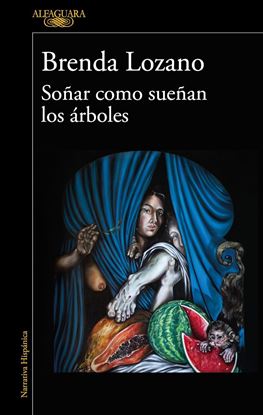

NO CONFIES EN PETER PAN (4) (BOL)
Han pasado cuatro meses desde que David Gurney resolvió el caso del Buen Pastor y las consecuencias han sido terribles: se perdieron vidas y hubo carrerasprofesionales afectadas. Uno de los que más ha sufrido ha sido Jack Hardwick, que violó la normativa por ayudar a Gurney.
Los superiores de Hardwick pensaron que despidiéndole arreglaban todos sus problemas. En realidad, se buscaron un enemigo acérrimo. Ahora, Hardwick se propone demostrar la ineptitud de sus antiguos empleadores presentando pruebas que sirvan para revisar algunas condenas muy sonadas.
Empieza con el caso Spalter, un rico empresario y promotor asesinado en el funeral de su madre. Su infiel esposa Kay fue condenada a cadena perpetua, pero Hardwick está seguro de que a la mujer le hizo la cama un detective corrupto y quiere que Gurney le ayude a probarlo.
750
LAS CUATRO ESQUINAS DEL MAR
Con la llegada del verano, Zaira deja de lado su faceta de maestra para echar una mano en el chiringuito que su familia regenta en la playa de Benalmádena. Son los meses de más trabajo, pero también de más beneficio para sus primos, con los que mantiene una estrecha relación desde que se quedaron huérfanos.
Sin embargo, una oleada de racismo sacude a esta familia gitana cuando uno de sus miembros es acusado de un grave delito. Con el apoyo de sus parientes y amigos, Zaira tratará de dilucidar la verdad y proteger a quien más quiere de ese odio irracional y descontrolado que los amenaza sin piedad.
995
SOÑAR COMO SUEÑAN LOS ARBOLES
Las vidas de Gloria Felipe y de Nuria Valencia se entrelazan en torno al robo de una niña pequeña que conmociona a la capital mexicana en la década de 1940. Por medio de una narradora que (en sus propias palabras) «no canta mal las rancheras», somos testigos de la batalla de los Miranda Felipe por recuperar a la menor de sus integrantes y de la crianza angustiosa de los Fernández Valencia para salvar a su propia niña de un peligro potencial que la policía no ha podido frenar y los medios reportan con el tono de un thriller.
Atravesada por diversas imágenes de agua –en forma de lluvia, mar, brisa, estanque o charco– que reflejan el estado anímico de sus personajes, Soñar como sueñan los árboles ofrece una mirada crítica de los mandatos de la maternidad, y muestra también las posibilidades de rebeldía y autodeterminación que abrieron las mujeres del medio siglo para nosotras. El sentido del humor sagaz y punzante de Brenda Lozano hace imposible soltar el libro hasta llegar a sus últimas páginas.
995











